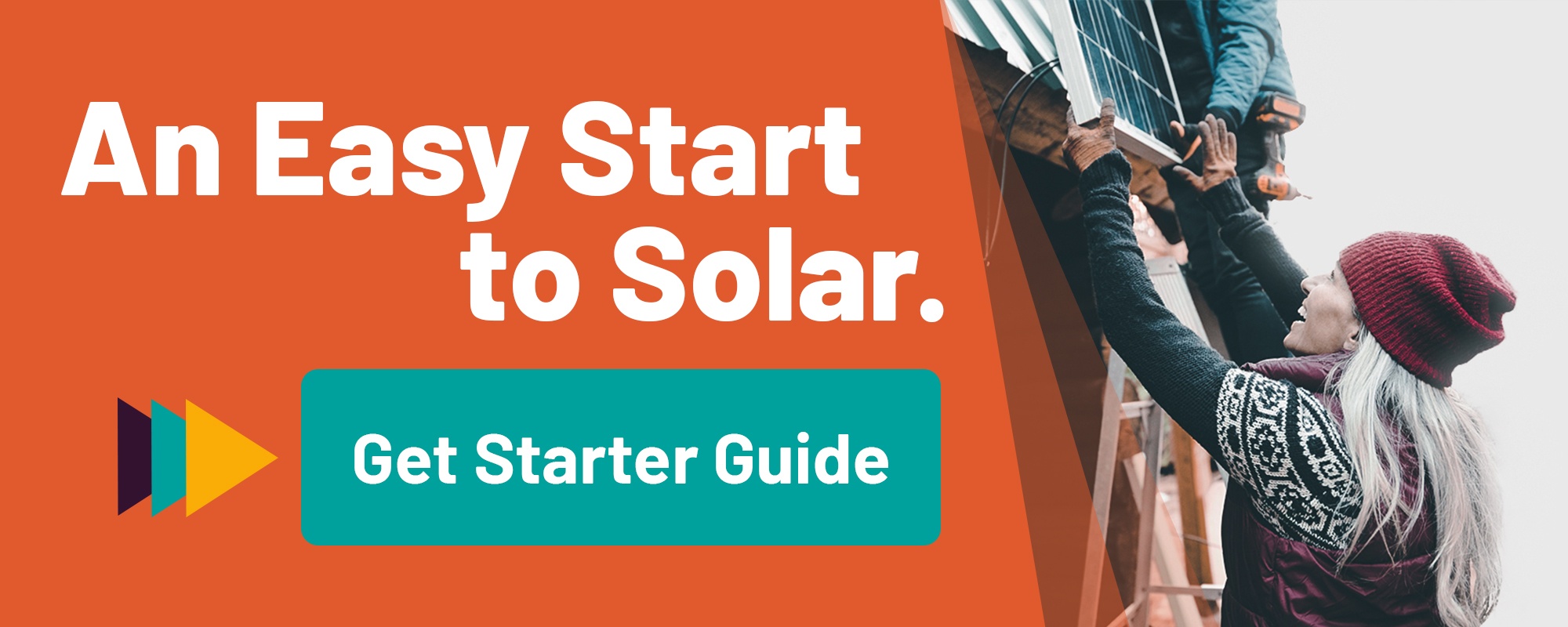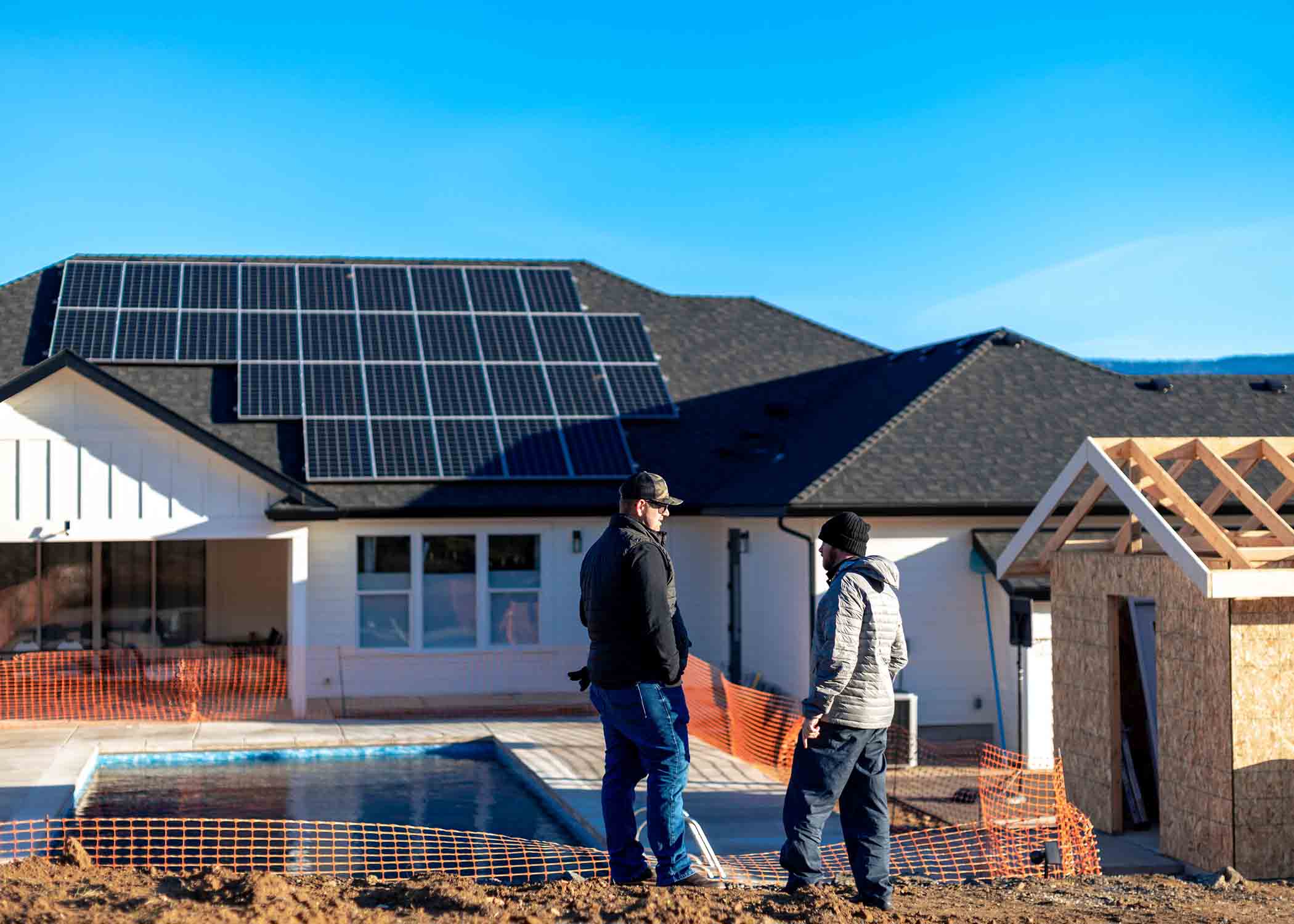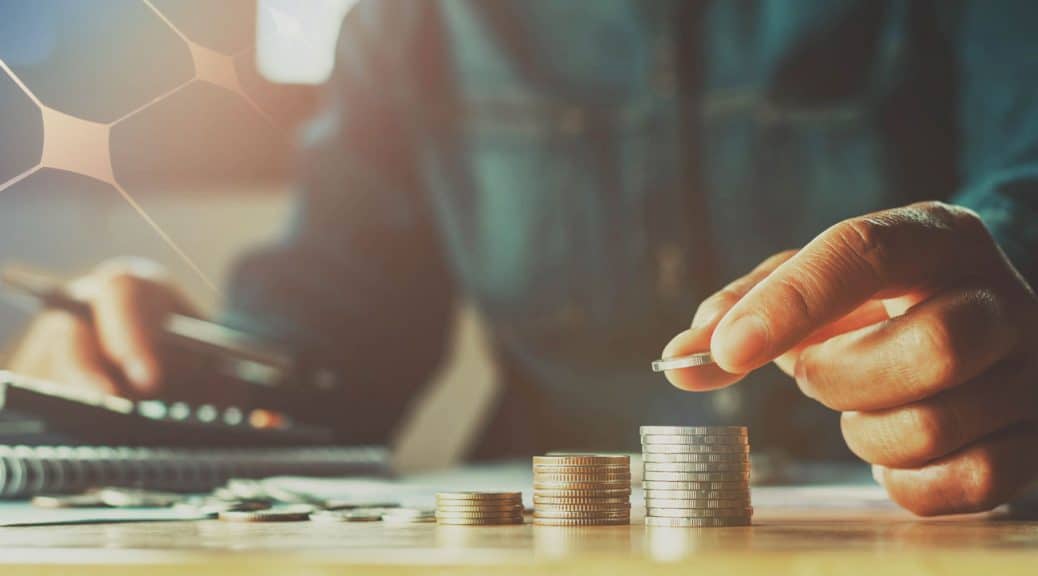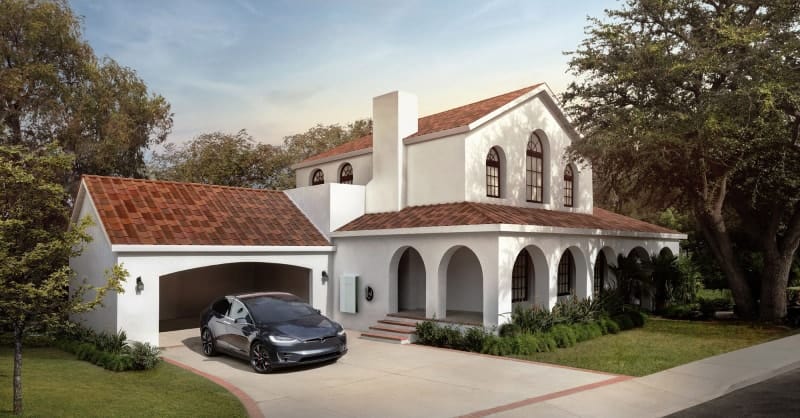As we all know, fossil fuels have been powering our world for eons.
All the way back to when exactly?
What is the 1800s, Alex?
Back when coal was first used to heat homes.
Since then, coal, oil, and gas have powered our society, but it’s also contributed to harmful greenhouse gases.

In turn, homeowners have been looking for a better way . . . for the environment and their pocketbooks.
Drumroll, please.
We bring you solar energy.
It’s increased in demand within the last 10 years, with 46% of homeowners looking to go solar.
And homeowners know the gifts that solar brings.
A solar energy system increases the value of your home (just like a kitchen upgrade) and helps you save on long-term energy costs.
As technology advances, more efficient and inexpensive solar options are emerging, making solar even more inexpensive and attractive.
Some, however, may hesitate to install a solar system due to concerns about the challenges in buying or selling a home with solar panels.
Here’s what you need to know about buying or selling, worry-free!
The Benefits of a Solar System
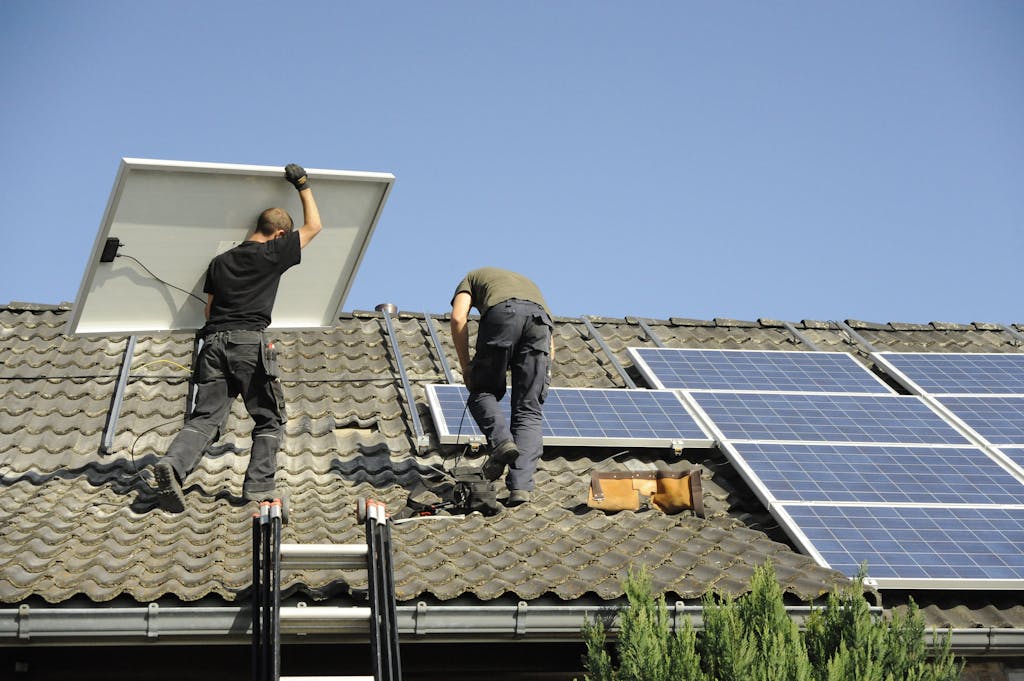
Before buying or selling a solar-equipped property, you should understand the benefits and downsides of a particular solar system.
This way, you can be upfront with either your buyer or seller.
Although every system comes with a different payback period, most homeowners with solar panels eventually pay less for their energy than they otherwise would.
Solar panels can also increase the appeal of a home to potential buyers.
Did you know that homes with solar sell 20% faster than those without?
Hard to complain about that!
Owning a System
If you own your solar system, you can count yourself among the most fortunate homeowners.
Depending on your system and installation costs, the average system takes between 7 – 20 years to pay off.
Though the average price is approximately $17,000 (excepting cases of extreme tax breaks), the average savings after 20 years is a whopping $20,000.
Power Purchase Agreement (PPA) vs. Solar Lease

Two common options for financing are solar leases and PPAs.
Generally speaking, the difference between the two is that a solar lease requires the lessee to pay a fixed monthly rate for the duration of the lease.
Meanwhile, a PPA company retains full ownership over the panels and charges homeowners only for the electricity they use.
In both arrangements, contracts can last as long as 20 to 25 years – a very, very long time.
The homeowner pays little to nothing upfront, doesn’t have to handle repairs, and gets a fixed rate on energy that should be lower than what local utility companies offer.
But that’s not the reality.
With a third-party solar provider, you’ll get hit with unexpected costs galore.
You’ll be paying a 2% to 3% annual increase for power and be held captive in a 20 to 25-year contract that you can’t easily escape.
Buying a Home with Solar Panels
When buying a home with a solar system installed, there are several questions you should be ready to ask.
Understanding these will help determine whether to buy the house outright (provided it meets your needs otherwise) or look at other options:
- Is the installer of the system still available to provide service?
- Do the current residents own the system, rather than lease or use a PPA?
- Was the system installed by a reputable party?
- Are the solar panel components themselves made by a reputable business that is still operating?
- Does the homeowner possess a copy of the original contract?
- Is the warranty plainly transferrable?
If the answer to all of these is yes, there’s little else to consider.
By purchasing the home, so long as the homeowner agrees, the possession and use of the solar system will transfer directly to you.
The Importance of Researching the Existing Solar System
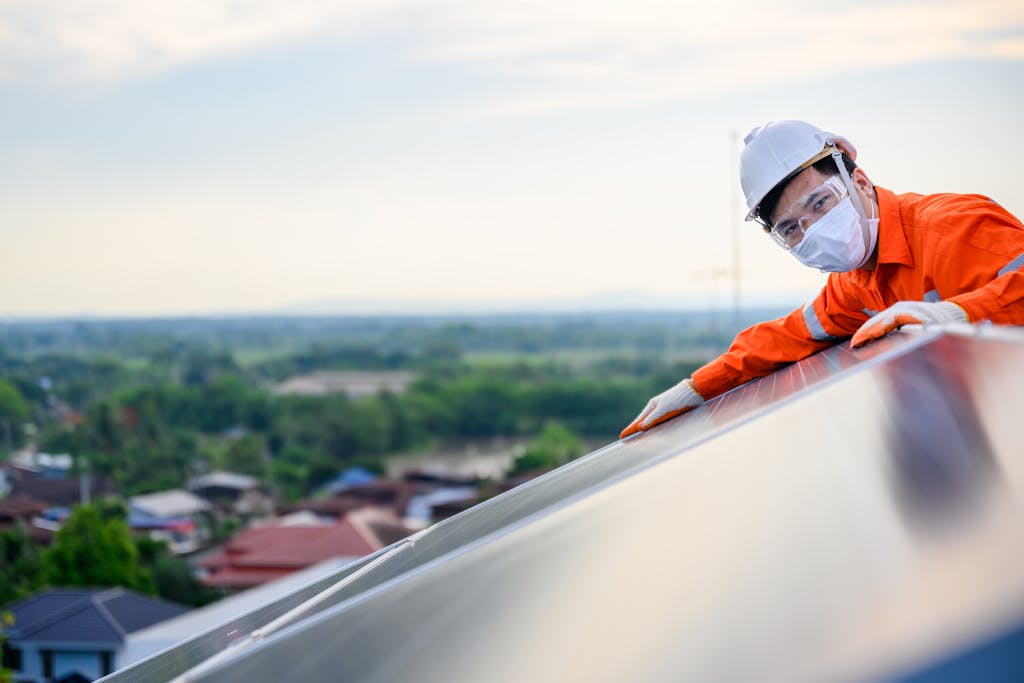
There are a wide range of solar products and components available and an equally wide range of quality.
Because determining quality by simply inspecting a piece of equipment is extremely unreliable, you may want to take an expert along with you.
As you talk things over with the seller or broker, try to determine the following:
- What is the efficiency of the panel as a percentage?
- What is the power tolerance?
- Is the frame of the system in good shape?
- Does the system use polycrystalline, monocrystalline, or amorphous technology?
- What is the reputation of the manufacturer?
Buying a Home with Leased Solar Panels or a PPA
When buying a home with leased panels, your best bet is to convince the seller to buy the system.
If you can work out a deal, then the seller can transfer the system to you.
If this isn’t an option, determine how much of the lease remains.
You may wish to buy the lease out yourself, but the cost of doing so is probably steep.
Selling a Home with Solar Panels
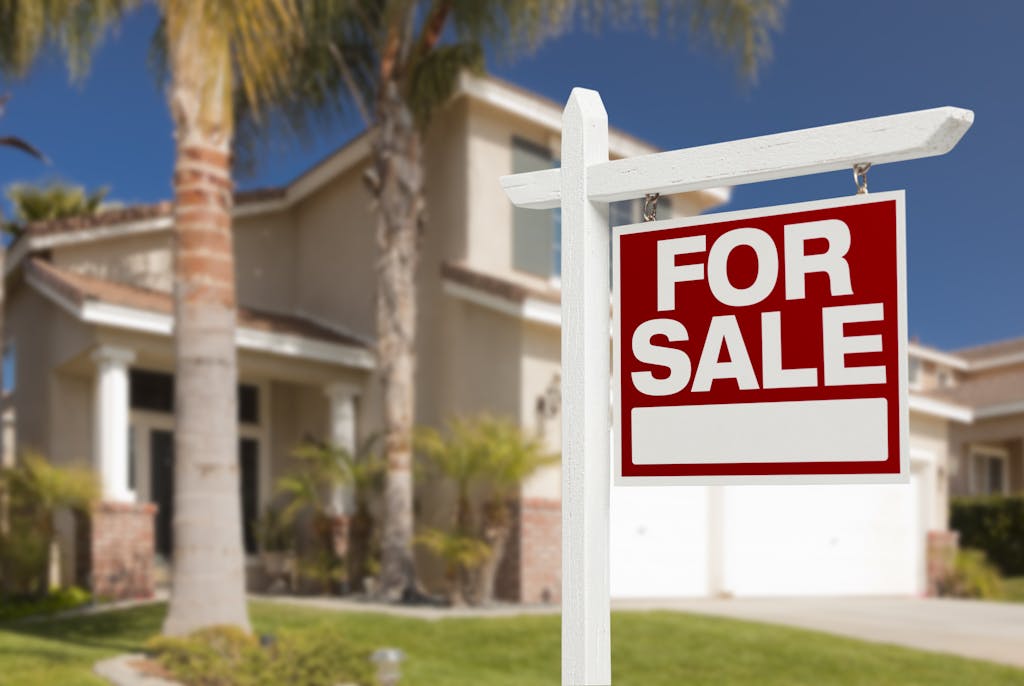
When selling a home, owning your solar system is key.
A system in good working order with a transferrable warranty can add great value to your property.
If you don’t wish to keep the panels installed, you can remove them, sell them, or do whatever you like.
Selling a home with a lease or PPA is a little more complicated.
Although it can sometimes feel like your situation is likely to scare off potential buyers, data indicates that this isn’t necessarily the case.
In the process of selling a home with solar panels, communicating the details of your system is critical. Have your warranty and contract available and make copies.
If you haven’t already, try to gather as many technical details as possible to give potential buyers.
These can serve as important selling points and can reduce confusion and indecision in prospective homebuyers.
Options for Selling with a Lease or PPA
For dealing with a lease or PPA, you essentially have two options:
1) Buy out the remaining portion of your lease
2) Transfer the lease to the new owner
Depending on your pre-existing agreement, there may be a significant penalty for buying out the lease early.
And the buyer usually needs to have good credit to take on the lease.
In most cases, however, an individual or family in buying a home has sufficient credit to start with.
How to Sell a House with Solar Financing
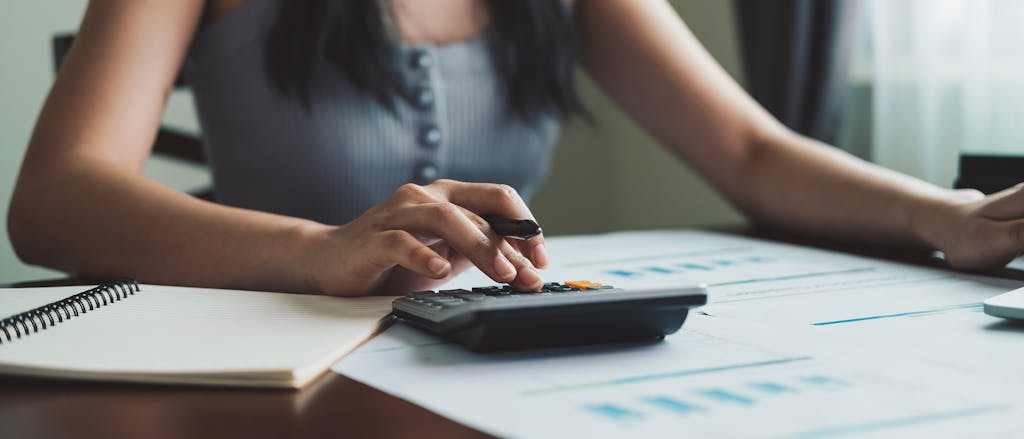
Think carefully about your financing options if you’re considering buying a solar system and cannot pay in cash.
For home improvement projects like solar installations, secured and unsecured loans are your main financing options.
Secured Loans
Secured loans use your home as collateral, giving your lender the right to foreclose on your home in case of a default.
While this can be intimidating, secured loans offer several benefits:
- Relatively low interest rates
- Lower credit score requirements
- Tax-deductible interest
- Many home equity loans and lines of credit available
Secured loans are good options for those with reliable, fixed income.
They tend to maximize the ultimate financial benefits of having a solar system.
Unsecured Loans
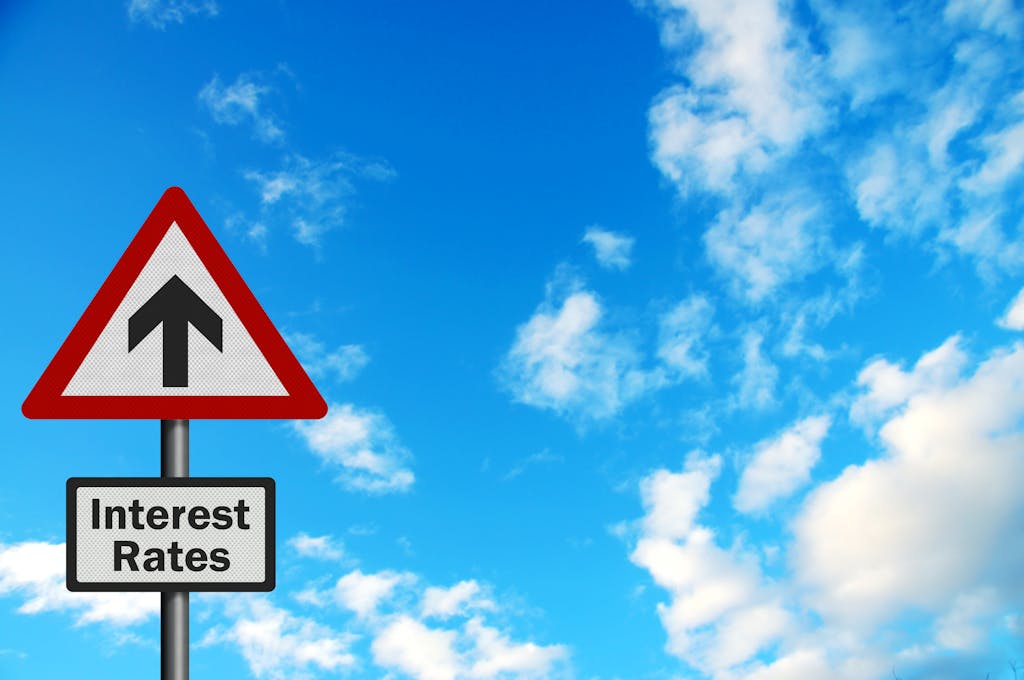
Unsecured loans do not use collateral, so lenders usually use higher interest rates to minimize their risk.
Although they have less long term value than secured loans, unsecured loans have:
- Less ultimate risk to the homeowner
- Quick approval times
Because they have higher interest rates and fees, unsecured loans cost more over time.
They are good options for those who anticipate having significant near-term income but don’t have the cash immediately on hand.
If you have already financed to own your installation, you should consider a few things before selling a home with solar panels.
You will have to pay off the full balance left on your home before selling if you are financed with a secured loan that uses your home as collateral.
With an unsecured loan, you can sell at any time.
While you are still required to pay the loan’s value, the value added to the home by your solar panels is likely to pay the loan off in a single shot.
Often, this remains possible even when unsecured loan lenders charge prepayment fees.
Moving with Solar!
At first glance, having a solar energy system in a home can seem like a challenge when moving.
In reality, buying and selling a home with solar panels is fairly easy to manage in most cases.
Because of the intrinsic value that solar energy provides to a property, it is often well worth the time and energy needed for installation and financing.
A solar energy system is great for the planet and your bank account and can help break you break free of unclean energy.
Visit Unbound Solar® for an estimate today!
